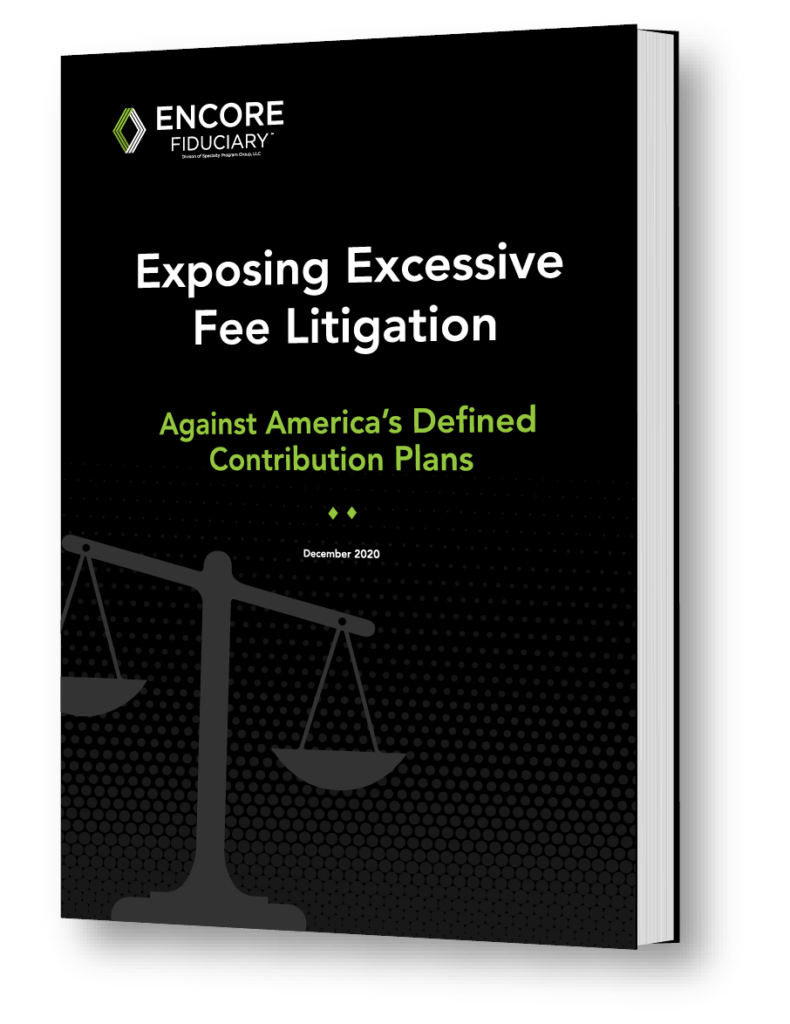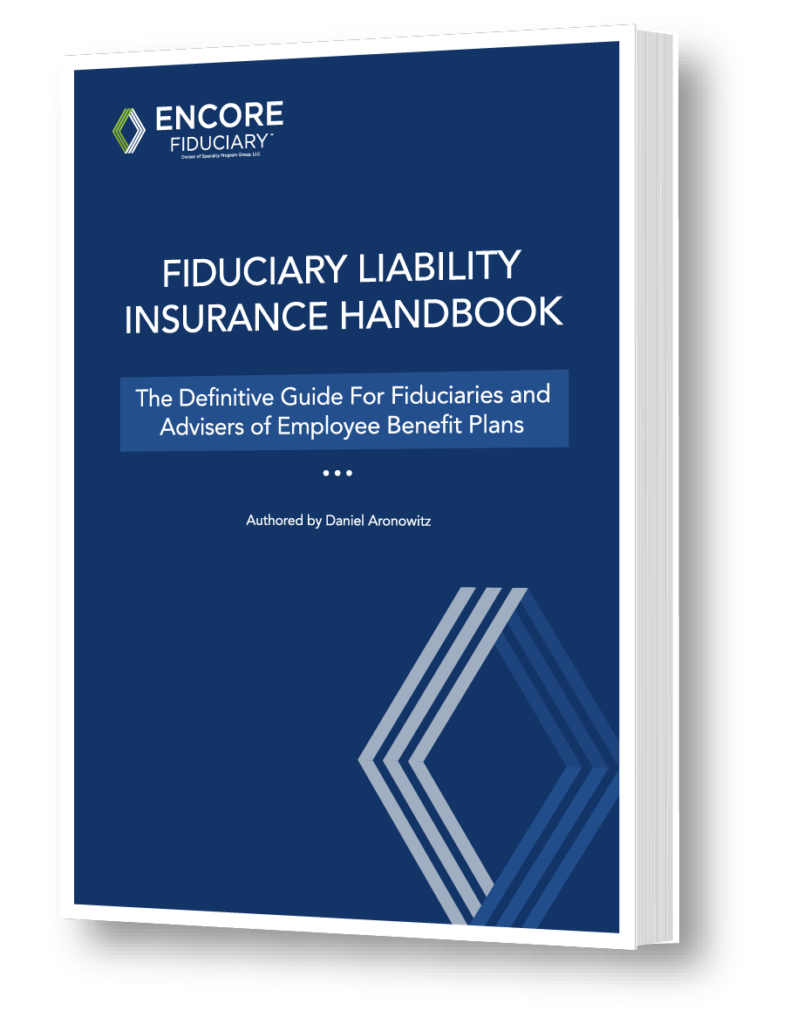Vienna, VA – March 31, 2022 – Euclid Fiduciary released a new whitepaper authored by the underwriting company’s Managing Principal Daniel Aronowitz reviewing the common misleading tactics used by plaintiff law firms to allege excessive plan administration fees. While recordkeeping fees represent less than twenty percent of total fees for defined contribution plans, the majority of purported excessive fee cases still allege a claim of excess recordkeeping fees. The goal in all of these cases is to survive a motion to dismiss and then leverage settlement pressure based on high discovery costs and inflated damage models. Unfortunately, most courts have allowed claims of excess recordkeeping fees to proceed to discovery, which allows many illegitimate cases to create settlement pressure based on litigation uncertainty and a high damages model.
According to Euclid’s whitepaper, “most large defined contribution retirement plans in this country have low recordkeeping fees – fees that are often five to ten times lower than the recordkeeping fees in most under $100 million small-asset plans.” But given the rampant misrepresentations of actual fee levels in the excess fee lawsuit claims, federal courts have not been given the proper perspective or context to make informed decisions on threshold pleading motions.
The whitepaper reviews that the Supreme Court held in Hughes v. Northwestern, 142 S. Ct. 737 (2022), held that all excess fee claims based on circumstantial evidence must be subjected to context-based scrutiny in order to survive as a plausible lawsuit. According to Daniel Aronowitz, “the only credible way to meet this context-based plausibility standard is if the fees are egregious based on a reliable, third-party benchmark.” Aronowitz further indicates that, “Fees within a reasonable range of established benchmarks – not plaintiff-manufactured benchmarks – are not plausible under the Supreme Court pleadings standard. In a claim of excessive fees, the only context that makes sense is if the fees are actually excessive at the threshold stage of the case. “
The common theme in all of the tactics debunked in the Euclid whitepaper is that the excessive fee plaintiffs bar is estimating or speculating on the plan’s recordkeeping fees. In most cases, inaccurate and inflated data is taken from the Form 5500 filings. Plaintiff firms know these Form 5500 fee numbers include transaction fees beyond plan recordkeeping, but assume that courts will defer to their allegations as true, even when the purported excess fee claims are often overstated and factually incorrect. But Euclid demonstrates that there is no need to estimate or speculate as to the plan fees, because every participant suing in these cases has access to Department of Labor mandated fee disclosures every three months. The participant fee disclosure contains the actual recordkeeping fees. Euclid urges the courts to demand accountability by requiring all excess fee lawsuits to disclose the true plan fees and investments from regulated fee disclosures. In addition, Euclid urges that the actual fees must be judged against valid, third-party fee benchmarks, and not plaintiff-contrived comparators. Only then can courts provide the careful, context scrutiny of excess fee claims based on circumstantial evidence. And with a true portrait of the low plan administration fees enjoyed by most large defined contribution plans, courts will have more complete perspective and context to dismiss implausible cases of excess plan fees.
To learn more, download the Whitepaper “Debunking Recordkeeping Fee Theories in “Excessive” Fee Cases” or visit our website at www.euclidfiduciary.com.
# # #
About Euclid Fiduciary
Euclid Specialty Managers, LLC, dba Euclid Fiduciary, is an insurance program administration company specializing in fiduciary liability insurance coverage for America’s employee benefit plans. Euclid offers best-in-class fiduciary, crime/ERISA fidelity, cyber liability, employment practices, and other professional liability insurance coverages to protect the fiduciaries of U.S. employee benefit plans. Our underwriters and claim professionals are experts in complex fiduciary liability and crime exposures, with decades of fiduciary liability experience and expertise.



